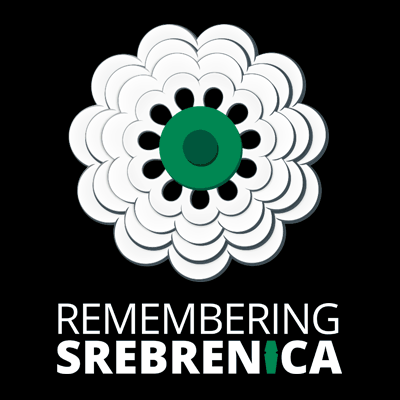- About
- Topics
- Story
- In-Depth
- Picks
- Opinion
- News
- Donate
- Signup for our newsletterOur Editors' Best Picks.Send
Read, Debate: Engage.
| November 28, 2018 | |
|---|---|
| topic: | Political violence |
| tags: | #Bosnia, #Croatia, #Serbia, #war criminals, #human rights |
| located: | Bosnia and Herzegovina, Serbia, Croatia |
| by: | Katarina Panić |
It’s been 23 years since the Dayton peace agreement reached (on Nov 21, 1995) by Bosnia, Croatia, and Serbia, ending the war that broke out in former Yugoslavia in the early 1990s. Peace has endured ever since, but today’s rhetoric is often far away from a peaceful one.
On November 20, eight Youth Initiative for Human Rights (YIHR) activists from Serbia started to collect funds to pay off a fine in the sum of 450,000 Serbian dinars (some 4,000 Euros); they were fined for disturbing the peace by protesting against convicted war criminal Veselin Šljivančanin, sentenced to 10 years of prison by The International Criminal Tribunal for the former Yugoslavia (ICTY – Hague Tribunal).
It happened in January 2017 at a public event organised by the ruling Serbian Progressive Party in Beška, a small town in the north of Serbia. When it was Šljivančanin’s turn to speak, the activists revealed a banner stating “War criminals should be silent so that victims could be heard”.
“By protesting against Veselin Šljivančanin we have drawn the public’s attention to the problematic promotions of convicted war criminals and the political legitimisation of their crimes. Crime must never be the norm, and those who committed them and deny them must not be glorified”, says YIHR in its statement.
Several more things happened this autumn: Ratko Mladić, a war criminal sentenced to life imprisonment, spoke live on a TV station in Serbia. The Serbian Orthodox Patriarch has said that the Hague Tribunal verdict handed down to Mladić was “the work of the devil”. Serbian Prime Minister Ana Brnabić denied the genocide in Srebrenica in an interview with Deutsche Welle journalist Tim Sebastian, despite the fact the crime was ruled an act of genocide by the International Court of Justice as well as the ICTY. Serbian Ministry of Defence Aleksandar Vulin promoted a book of Nebojša Pavković, a convicted war criminal who serves 22 years in prison.
“The focus should be on victims. Can you imagine how the war crimes victims felt hearing Mladić on TV show with national coverage? The state policy mustn't promote war criminals. It certainly can not calm the tensions in the region”, Milan Antonijević, director of Lawyers’ Committee for Human Rights YUCOM from Belgrade told Serbian media.
This time last year Vladimir Lazarevic was appointed as a military academy lecturer in Serbia after serving two-thirds of his war crimes sentence. Vojislav Šešelj was convicted of persecuting Croatians in the north of Serbia. Yet, he remains an MP, contrary to Serbian law which states that his mandate should end upon conviction. The ruling Socialist Party of Serbia appointed Nikola Šainović as a member of its main board right after he returned to Belgrade after serving two-thirds of his war crimes sentence.
The same as in Serbia, those who protest against 1990s war criminals rehabilitation, amid growing state repression in Bosnia and Croatia too, where war criminals have been glorified and placed in the spotlight in public spaces as well.
Bosnian Serb officials have named a student dorm in Pale near Sarajevo after wartime leader Radovan Karadžić. Former Bosnian Serb leader, Karadžić is the highest-ranking official sentenced by the United Nations' Hague-based war tribunal for the former Yugoslavia. He has been sentenced to 40 years in jail and he is now appealing against the verdict.
The leader of the Serb Democratic Party, SDS, Vukota Govedarica told his audience that he wanted to "look like" Radovan Karadžić. Govedarica was a candidate for president of Bosnia’s Serb-dominated Republika Srpska entity in Bosnia's general election which took place in October. Another SDS's official, Miroslav Kraljević, mayor of the municipality of Vlasenica put a campaign billboard with the images of himself with Ratko Mladić who is appealing a life sentence. In response to that, the chief of the OSCE Mission to Bosnia and Herzegovina, Bruce Berton, wrote on Twitter: „Glorifying war criminals? Promoting revenge instead of justice? How will this help the economy, healthcare or education? Come on candidates, you can do better! Let's talk about real issues!“
In Croatia and in parts of Bosnia inhabited mostly by Croats people hadn’t welcome the final judgement against six Bosnian Croat wartime leaders who had their jail terms upheld by the ICTY. Among them was Slobodan Praljak, sentenced to 20 years in prison, who committed suicide by swallowing potassium cyanide after the court rejected his appeal. He was hailed as a martyr and hero in his homeland.
Croatian Prime Minister Andrej Plenkovic denounced the verdict as a “deep moral injustice” against the convicted and rejected the finding that Croatia state was complicit in war crimes. Croatian president Kolinda Grabar Kitarović said Praljak's “act has deeply affected the Croatian people” and added: “No one, not even the Criminal Tribunal in the Hague will write our history. We will fight with all our legal and political tools for truth and justice”. She also refused the Youth Initiative for Human Rights in Croatia request to convicted war criminals to be stripped of military decorations.
Politicians all over the Balkans, who base their campaign on chauvinism, often deny war crimes committed by “ours” and blame other sides for ones committed by “theirs.”
By copying the embed code below, you agree to adhere to our republishing guidelines.

